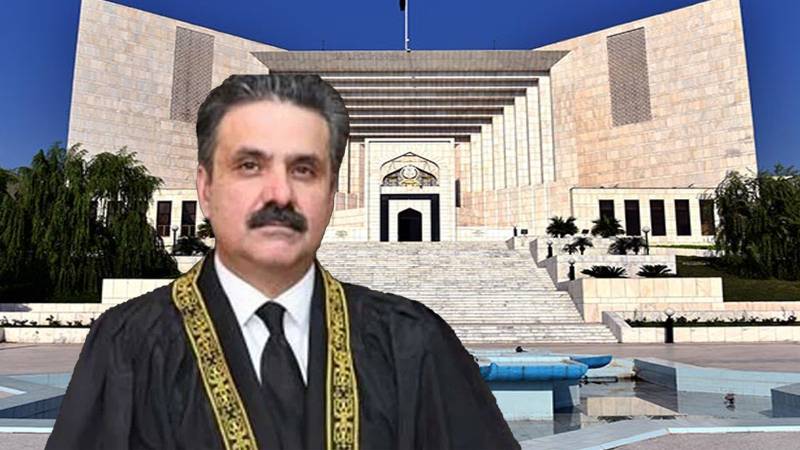
President Asif Ali Zardari has appointed Justice Yahya Afridi as the new Chief Justice of Pakistan. He will take over from the current Chief Justice, Qazi Faez Isa, starting on October 26. This appointment was announced in a statement from the Aiwan-e-Sadr, the President's office.
Justice Afridi's appointment follows a new process established by the 26th Constitutional Amendment Bill, which allows a Special Parliamentary Committee to recommend candidates for the Chief Justice position. This committee, made up of members from various political parties, nominated Justice Afridi with a two-thirds majority. Prime Minister Shehbaz Sharif then approved the recommendation, and President Zardari formally appointed him.
Justice Afridi will serve a fixed term of three years. This method of appointing the Chief Justice is new in Pakistan and marks a significant change in how such positions are filled. However, the key opposition party, Pakistan Tehreek-e-Insaf (PTI), chose not to participate in the committee's meetings and has opposed the recent judicial reforms, labeling them as a threat to judicial independence. The PTI has vowed to challenge Afridi's nomination and plans to start a protest movement against the committee's decision.
Born on January 23, 1965, in Dera Ismail Khan, Justice Afridi comes from the Afridi tribe and has a strong family background in public service. He attended Aitchison College in Lahore for his early education and later earned a Bachelor’s degree in Political Science and Economics from Government College Lahore. He also holds a Master’s degree in Economics from Punjab University.
After receiving a Commonwealth Scholarship, he completed his LLM at Jesus College, University of Cambridge. Additionally, he participated in a Young Commonwealth Lawyers program in London. He began his career in private practice in Peshawar and also taught at Khyber Law College, focusing on International Law, Labour Law, and Administrative Law.
Justice Afridi began his official legal career in 1990 as an advocate for the High Court and became an advocate for the Supreme Court in 2004. He served as the Assistant Advocate General for Khyber Pakhtunkhwa and worked as a Federal Counsel for the Government of Pakistan.
In 2010, he was appointed as an Additional Judge of the Peshawar High Court and confirmed as a permanent judge in 2012. Notably, he became the first judge from the Federally Administered Tribal Area to serve as Chief Justice of the Peshawar High Court, a position he held from December 2016 until his promotion to the Supreme Court of Pakistan in June 2018.
Justice Afridi's elevation to the role of Chief Justice comes at a time of significant political and legal changes in the country. As he prepares to take on his new role, the ongoing debate about judicial independence and the political dynamics surrounding his appointment will likely continue to unfold.

